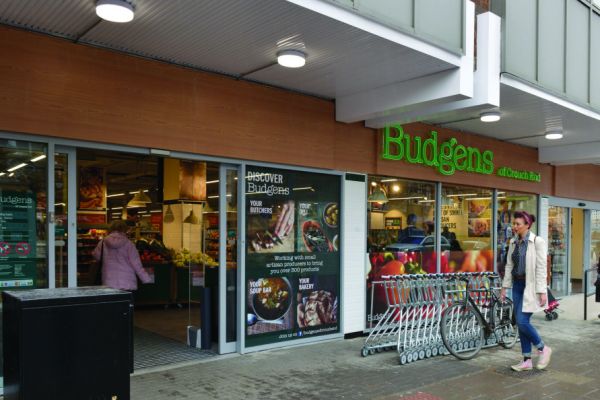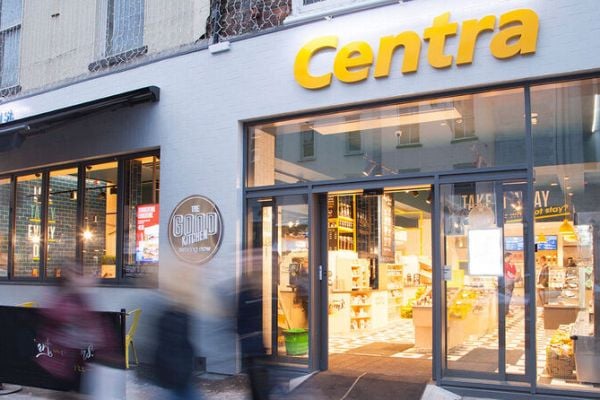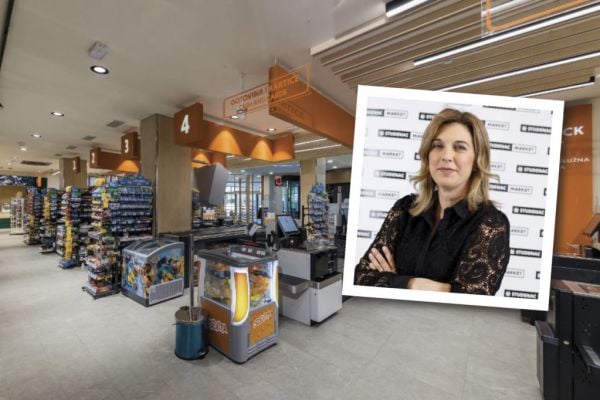Last month, Musgrave Group announced that it was to exit mainland UK with the sale of its Budgens and Londis businesses to Booker. Stephen Wynne-Jones spoke to Chris Martin, Musgrave Group chief executive, about the reasoning behind the deal.
On 24 May, Musgrave Group announced that it was to bring to an end a 15-year sojourn into mainland Britain, with the news that it was to sell its Budgens and Londis operations to the Booker wholesale group for €57 million, subject to competition-authority approval.
The deal puts a full stop to a rocky few years for Musgrave’s UK business, however, the timing of the announcement – just weeks after Londis announced its new leadership structure – took many in the trade by surprise.
Ahead of Musgrave’s annual results, which are being released in mid-June, Checkout caught up with its chief executive, Chris Martin, to determine why the time was right for the retailer to move on, and why Budgens and Londis are a “good fit” for Booker.
“Over the last 12 months, we’ve been focused on turnaround, and we’ve been reducing our losses in GB, to £7 million in 2014,” he said. “But the reality is that the GB market has become a lot tougher. Whilst we’ve been driving forward the turnaround, we concluded in re-evaluating our options that we needed to be a business of scale in GB to really compete.”
While the announcement predates the publication of Musgrave’s annual report for 2014, the sales performance for its UK businesses has already been made public. Sales at Budgens totalled £329 million (€462 million) last year, across 167 stores. At Londis, sales stood at £504 million (€707.5 million) across 1,630 stores. In both cases, revenues have declined year on year, albeit working from a smaller store count. Budgens’ sales in 2013 were approximately €600 million from 190 stores, while Londis’s sales were €1.4 billion from 2018 stores.
As Martin explains, Booker’s approach came at an opportune time for Musgrave. “We’ve known Booker for a long time. It’s a very similar business to ours in terms of supporting independent retailers. It seemed a good fit, and throughout all of this, our focus, really, was that we do the right thing for our retailers.”
Strategic Partnership
One of the more interesting aspects of the deal is that it opens the possibility for Musgrave to work more closely with Booker on what has been deemed a ‘strategic partnership’, involving collaboration on digital innovation, buying opportunities and even store formats.
“It’s about working together in a multitude of areas, and sharing what we’re both good at,” says Martin. “Booker has grown its digital offering considerably, and we are also doing a lot of good work in digital. There are things to share.
“In addition, it has got a strong convenience offering [Premier, which boasts around 3,000 stores across the UK], and in Centra we’ve got a worldwide-recognised brand format, which they’re interested in talking to us about, in terms of how we can help them. And then there are the obvious areas, particularly in relation to trading, which could provide an opportunity for Irish suppliers to have an entry into the British market.”
Booker, meanwhile, is suitably bullish about the prospect, describing the acquisition as one that will help independent retailers ‘prosper’ in a competitive UK marketplace. Following the announcement, it said in a statement, ‘Booker’s aim is to further develop the Budgens and Londis brands alongside Premier and Family Shopper, Booker’s retail brands. Musgrave GB Limited’s supply chain will be used for delivery to Booker retail customers. Budgens and Londis customers will retain their brands, but will benefit from a better local and national supply chain. This will help improve the choice offered by the retailer to the consumer.’
In addition, it added that ‘the increased scale and operational efficiency should help lower prices, and retailers will benefit from a better delivery and cash-and-carry service. This will help independents prosper amid the changes that are occurring in the grocery market.’
Changing Times
Musgrave’s initial entry into the UK market took place at the turn of the millennium, with a move for Budgens (then controlled by German retailer Rewe) in 2000. The purchase of Londis Holdings Ltd followed in 2004, and with that acquisition, Musgrave was able to boost its store count in Britain to over 2,000, very much cementing it as a key player in the UK convenience sector.
Recent history, however, has been a little more problematic. In April 2014, Musgrave announced that it was parting ways with one of its most loyal lieutenants, Donal Horgan, who stepped down as managing director of the group’s Musgrave Retail Partners GB operation. His departure, which followed that of finance director Julie Worth and trading director Kenton Burchell, illustrated that not all was well within the UK operation – a fact that was writ large the following month, when Musgrave announced a loss of €94.9 million for the full year 2013, including a €131 million write-down of its UK assets.
As Martin told this magazine a year ago, the problem in its UK business stemmed from the fact that Musgrave took its foot off the gas when it came to maintaining standards.
“We relaxed the rules when it came to service standards, branding and basic purchasing loyalty,” he said at the time. “Why? Because the belief was we could bring in retailers and then shift them to those brand standards. We didn’t, they became unprofitable, and the losses increased.”
Fast-forward a year, and many of the problems that materialised in the UK operation remain, despite a concerted effort to restructure its operations there. Last autumn, it announced it was severing its relationship with some of its worst-performing Londis stores, in a bid to concentrate on retailers that meet its buying requirements. The coming of the New Year saw an overhaul of the group’s UK management structures, with Mike Baker and John Pattison installed as Budgens and Londis brand directors, respectively. Also that month, Budgens was forced to climb back on its plans to scrap a retailer rebate scheme following an outcry from its retailers.
As Martin explains, the turnaround team in the UK has been “grappling” with plenty of obstacles over the past couple of years, but stresses that “we’ve got a business that is in really good shape, and Booker wouldn’t be looking at it if it wasn’t in that position”.
In April, less than a month before the Booker announcement, yet more leadership changes were being rolled out at Londis, with the arrival of Tesco’s Des Dunbar, and the appointment of a new retail director and head of loyalty.
As Martin explains, these executives will be transferred to Booker’s management once the deal is completed. “Booker have committed to working with the existing head office and the supply chain, and, again, that is part of our responsibility here,” he explains. “We want to do the right thing for the people that we brought in.
“When I speak to our retailers today, they can see that the turnaround programmes are working, and they’re pleased with this announcement because it removes an uncertainty. They’re now partnering with somebody who’s got the scale, which is needed in GB, and, clearly, is very committed to the independent sector.”
Clean Slate
The issues that Musgrave has encountered of late aren’t going to go away overnight, of course, and in a briefing note, Barclays retail analyst James Anstead argued that while Booker management “were complimentary about the Irish operations […] Musgrave GB has had a troubled recent history. Sales have been declining, and FY14 saw an operating loss of [approximately] £7 million.”
Booker, he added, has announced that it expects the deal to be earnings neutral in FY 2016, and earnings enhancing thereafter. “Musgrave GB’s gross margins are [approximately] 11%, ahead of Booker’s retail gross margins of 7%. […] That Musgrave has not achieved an EBIT margin over 0.65% in the past five years suggests that we cannot take margin uplift for granted.”
He added that the deal will likely mean that Londis and Budgens retailers will now be “more competitive, buying at better rates from Booker, enabling improved profits and/or lower prices. Booker stores will also be available for top-ups.
“Booker (especially Premier retailers) should also benefit from Musgrave’s chilled distribution infrastructure and, where relevant, the use of new brands, if this suits their local market better.”
Focus On Ireland
Of course, the inevitable follow-on from this deal is that Musgrave will be placing more investment in its Irish operation, where it recently attained a market-leading position.
While Checkout believes that the group arguably could have got a better deal than the €57 million on the table, Martin is quick to point out that it is a “good deal for Musgrave. It removes a loss-making business, and, yes, we’ve got €57 million, but the real issue is: it brings us back to growth, growing with our Irish business, where we’ve seen some very good performances.”
Following on from its Superquinn rebrand last year, Musgrave recently acquired the Allied Foods business from DCC, offering it greater flexibility when it comes to logistics support for its retail brands. On the back of this most recent announcement, Martin sees this level of investment gaining pace.
“We’ve invested heavily in our retail network in five years, and we’re going to continue that level of investment. We’re not going to stop, because that’s part of the reason why we’re so successful in Ireland.”














